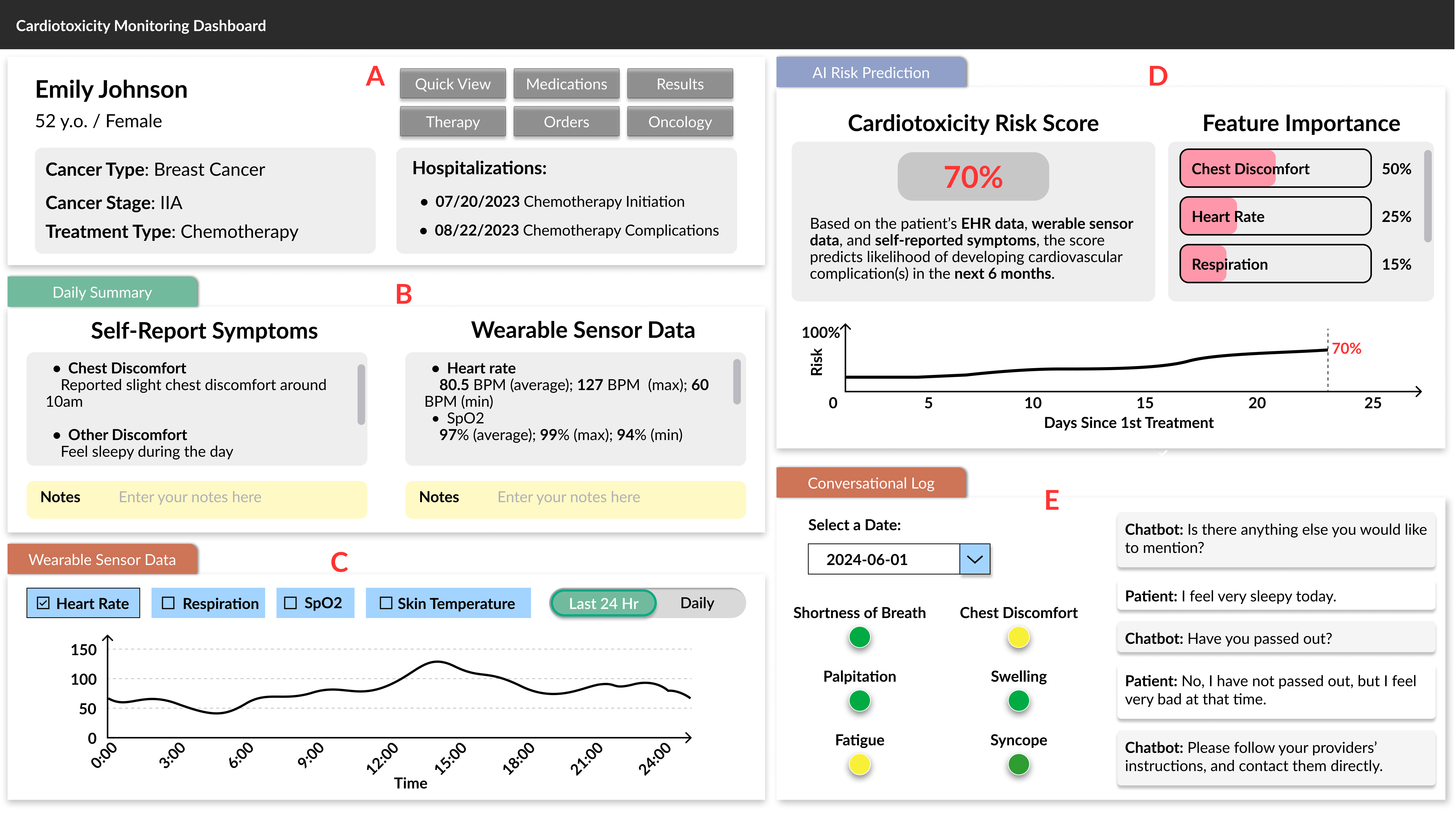Human-AI Collaboration in Complex Medical Decision Making
Despite recent advances in cancer treatments that prolong patients’ lives, treatment-induced cardiotoxicity (i.e., the various heart damages caused by cancer treatments) emerges as one major side effect. The clinical decision-making process of cardiotoxicity is challenging, as early symptoms may happen in non-clinical settings and are too subtle to be noticed until life-threatening events occur at a later stage; clinicians already have a high workload focusing on the cancer treatment, no additional effort to spare on the cardiotoxicity side effect. Our project starts with a participatory design study with 11 clinicians to understand their decision-making practices and their feedback on an initial design of an AI-based decision-support system. Based on their feedback, we then propose a multimodal AI system, CardioAI, that can integrate wearables data and voice assistant data to model a patient’s cardiotoxicity risk to support clinicians’ decision-making. We conclude our paper with a small-scale heuristic evaluation with four experts and the discussion of future design considerations.
